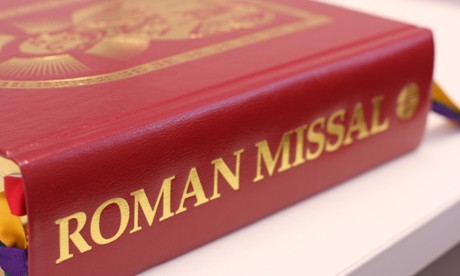Most United States Catholic parish leaders who responded to a liturgy survey find the new English translation of the Mass “awkward and distracting”.
Half of the 539 parishes who responded to questions from Georgetown’s Center for Applied Research in the Apostolate (CARA) agreed that the translation “urgently needs to be revised”.
The translation went into effect in 2011 in the US and has been criticised because of its use of awkward and stilted English in translating from the Latin version of the Mass.
An exact word-for-word approach to translations was called for by Roman instruction Liturgiam Authenticam in 2001.
The CARA survey shows the struggle many parishes are still having in adopting the new text.
About75 percent of respondents said they either “agree” or “strongly agree” that “some of the language of the new text is awkward and distracting”.
“Forty-seven percent answered “strongly agree” to that statement.
Likewise, an even 50 percent of those answering said they “agree” or “strongly agree” that “the new translation urgently needs to be revised,” with 33 per cent answering “strongly agree”.
Release of the new CARA survey also comes shortly after one of the former leaders of the US bishops’ conference said publicly that the new translation has “flaws and difficulties”.
Speaking at a liturgical conference in St Petersburg, Florida on March 29, Atlanta Archbishop Wilton Gregory said it was time for priests and bishops to say of the translation: “We’ve tried it, we’ve lived with it, we think it needs correction.”
CARA sent its survey to 6000 parishes before receiving the 539 responses.
Of the 539 responding, 444 were members of the clergy (421 diocesan or religious priests, 13 deacons) and 75 were lay leaders (57 women religious or other laywomen, 18 religious brothers or other laymen).
Fr Anthony Cutcher, president of the National Federation of Priests’ Councils, said in a statement that the survey may help lead “constructive criticism” of the missal.
Sources
